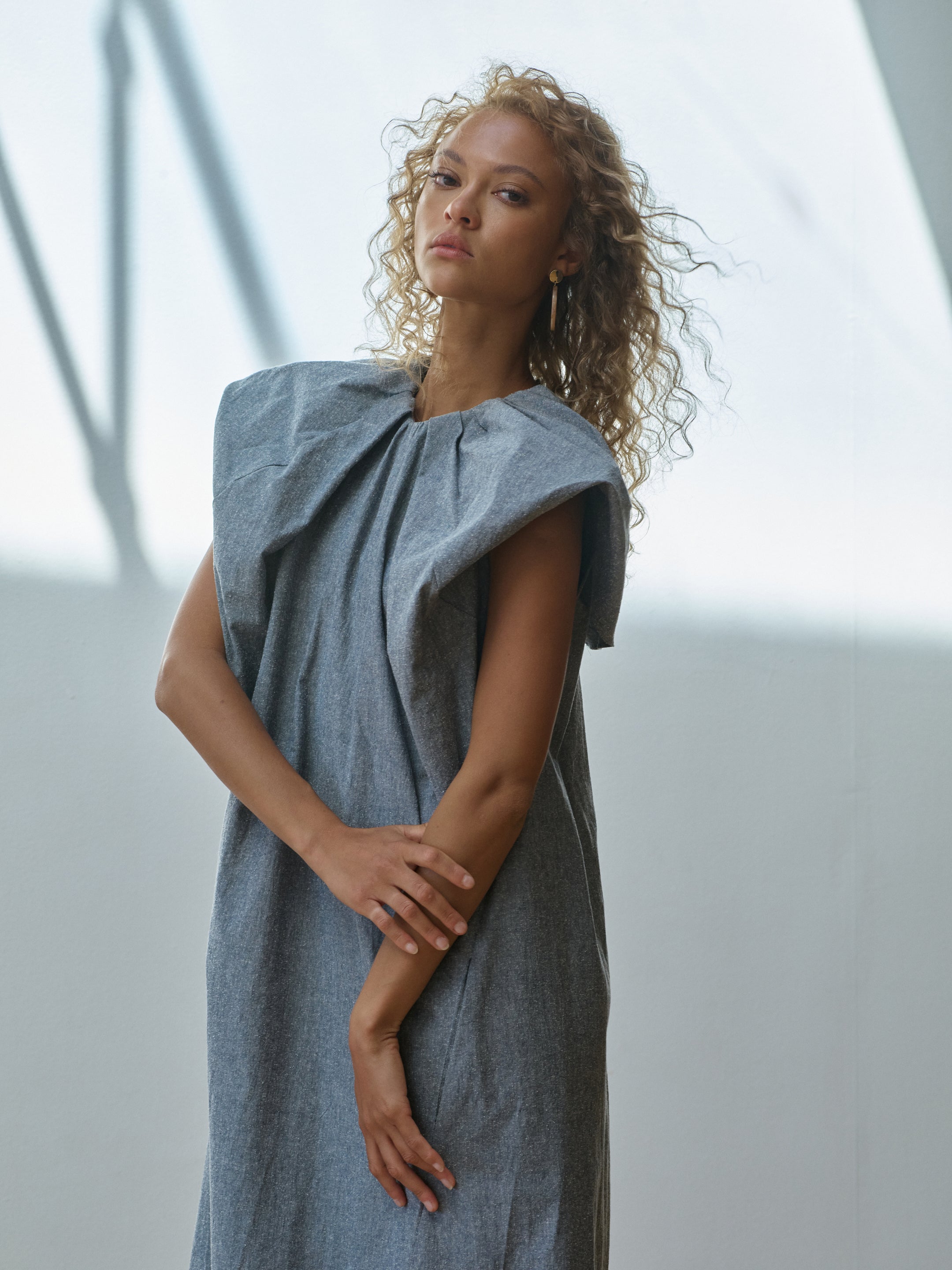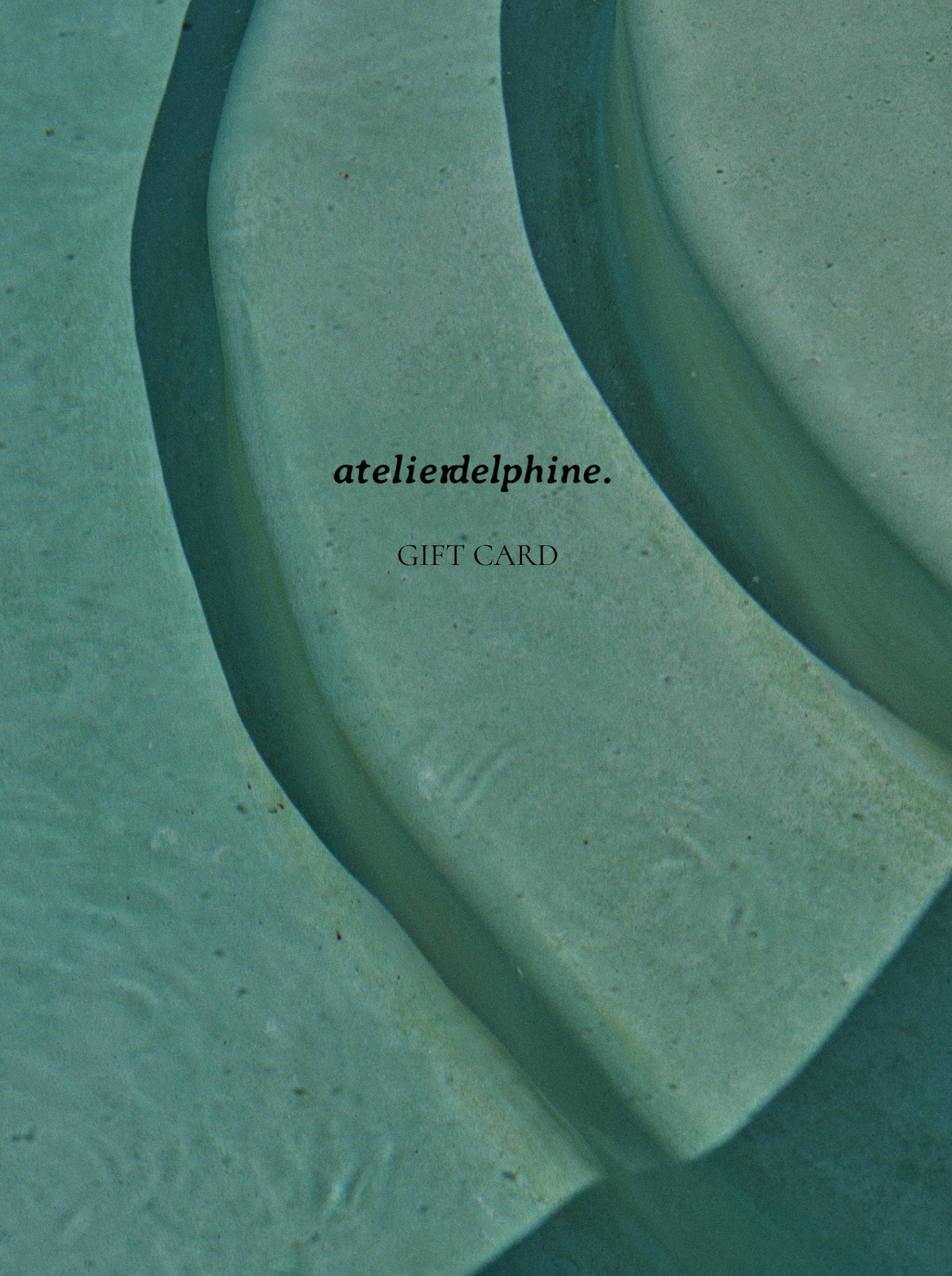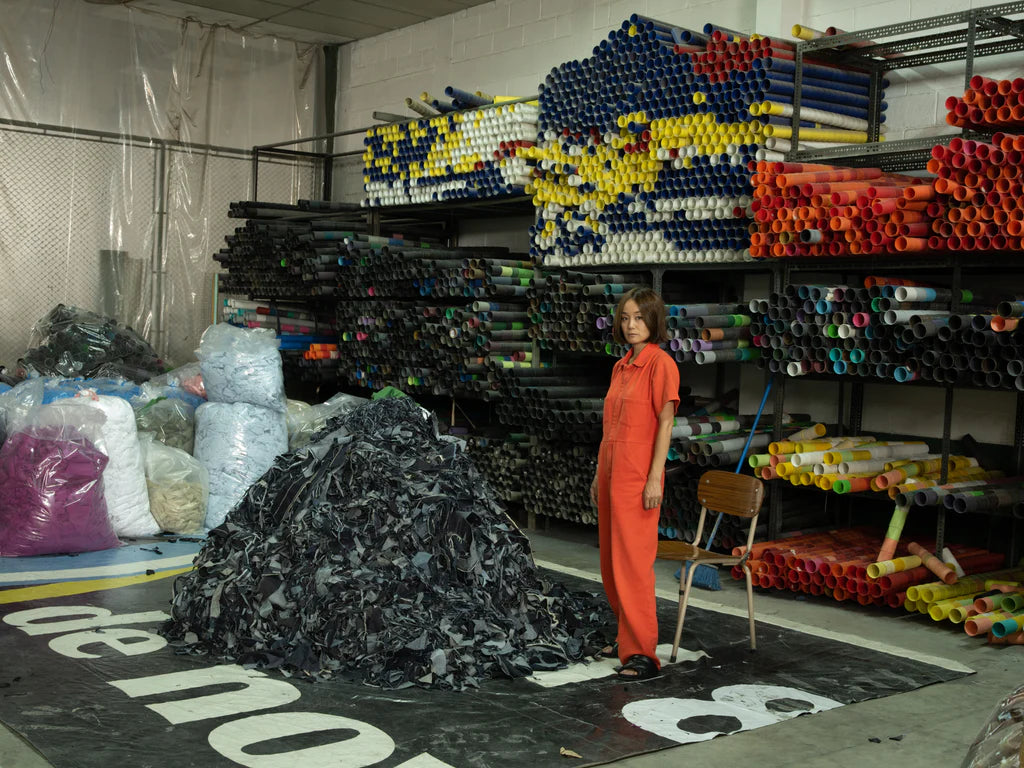
The ethics and aesthetics of the clothes we wear
The Beauty of Upcycling
By Dean Kuipers
Photography by Yoshihiro Makino
Fashion is one way we explore who we are. We take on different looks, trying for an expression that feels authentic, that says, “This is who I am.” It’s fun to experiment with a new image, but none of us are ever 100% satisfied with the results. That’s because authenticity goes beyond looks.
Atelier Delphine founder Yuka started out two decades ago as a sales person in a designer shop in Japan. She was interested in the philosophy behind style, why we choose one look or another. But as “fast fashion” took over the industry, with an emphasis on runway knockoffs, low quality and huge volume, she felt that the clothing business had lost its soul. She moved to the U.S. to go to art school, hungry to rediscover an expression that was authentic. In school, she realized that the clothes weren’t the problem: it was the culture in which they were made. All these trendy looks were regarded as disposable, and thus meaningless. Meaning requires ethics, connecting clothing or food or other goods to a set of values.
“I started Atelier Delphine almost nine years ago, and my focus is on artistic vision and clothing concepts, but also on ethics. This was a very important step beyond looks,” says Yuka. “I want to connect with collaborators who are both ethical and – equally important – believe that clothing has a lot to say about who you are, because fashion is all about that.”
Atelier Delphine, for instance, reflects Yuka’s personal take on identity. She wants sophisticated style that lasts, and that means design inspired by passion and supported by high-quality materials. Passion reveals the deeper beliefs of the wearer, the conscious choice to be who we are not and just match trends. Identity doesn’t change overnight, but deepens over time. That idea informs and drives Yuka’s work every day.
“My style is always quietly radical and challenging in very subtle ways. I feel good about what I’m wearing and I am asking new and fresh questions about clothing,” she says.
Style that lasts also requires an ethical commitment. But what are the “ethical” concerns about clothes? Nobody talks about it much, but the massive global industry that makes our clothing and shoes is an environmental disaster, and the fashion biz really needs to address this head-on. The apparel industry is responsible for 8 percent of global greenhouse gas emissions, according to a 2018 study, an amount equal to the emissions of the entire European Union. And as global supply chains move faster and faster (stores such as H&M and Forever21 get daily shipments of new styles), that number is only going up. Synthetic fibers in clothing are also responsible for most of the microplastics now in our water supply and in our bodies and the bodies of all global creatures. We’re all encouraged to regularly Marie Kondo our closets, toss our barely worn clothing in the Goodwill donation box, and get new, updated stuff. The waste is gargantuan. But there’s a better way.
Clothing can express more than just good taste. It can demonstrate that a person or a culture are committed to a livable future for everything on Earth.
“Clothing has a lot of conflicts, and those need to be answered,” says Yuka. Manufacturing processes are wasteful and dirty. Clothing involves massive amounts of packaging. Defective garments are routinely tossed. Giant factory minimum orders pretty much guarantee that most clothing will never sell. The quality of the clothing needs to justify the enormous amount of shipping, logistics, brick-and-mortar real estate and marketing required to get them to customers.
“I have encountered these big and small issues every day in the last nine years,” Yuka notes. “Some people tell me, ‘I always think before throwing clothes away,’ meaning they will donate or resell them, but I say, ‘You better think before even buying.’ I really encourage buyers and customers to study the concept of the brand, the designer’s vision, and judge whether you can trust the maker or brand to share your vision. Now that ‘eco’ has become a trend, there are many that use it for profit, to make it look like ‘eco’ but waste in reality. So we need to learn the facts and make consumer choices based on truth.”
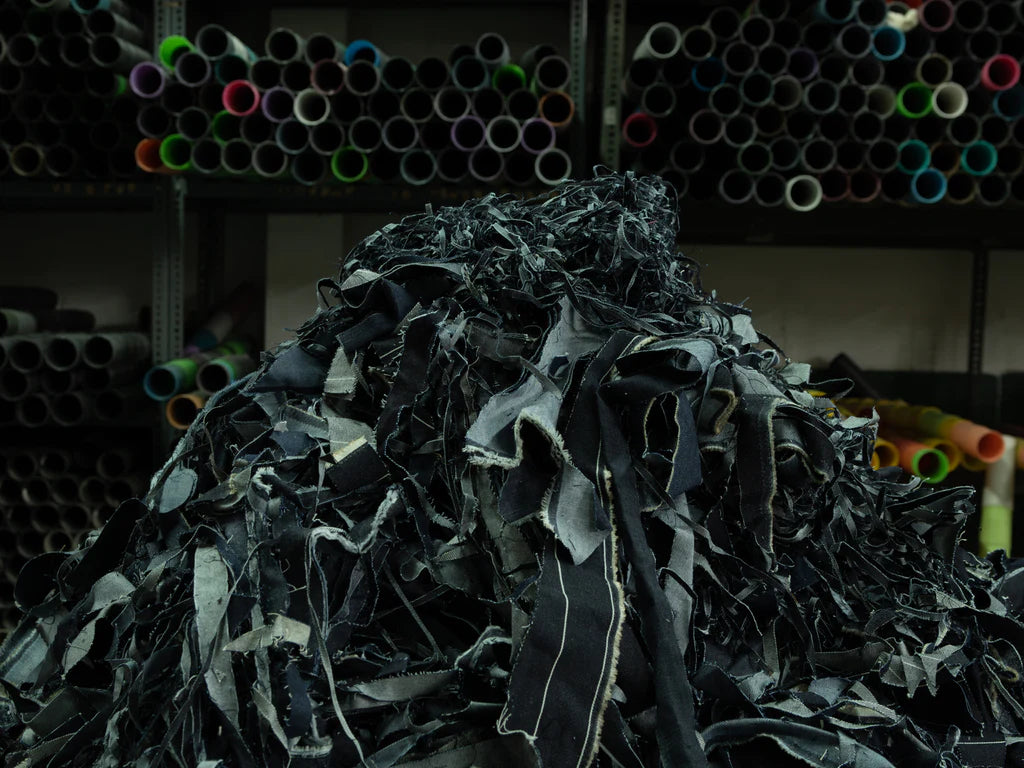
The New Denim Project
Yuka started her own search for truth by sourcing better fabrics for her line, and a friend introduced her to The New Denim Project. Based in Guatemala City, this company weaves new, high-quality denim out of the denim waste from the cut-and-sew tables in local apparel manufacturing plants and other reclaimed cotton fiber. Sisters Arianne and Joanna Engelberg started the project six years ago at Iris Textiles, a Guatemalan mill opened by their grandfather in 1956 and still run by their father today.
Intrigued, Yuka made her first visit to Guatemala City in 2019. She was impressed by the Engelbergs’ upcycled denim: light blue and softer than ordinary denim, it’s almost like chambray.
“It’s a beautiful material,” Yuka says, “People say, ‘that is cool clothing,’ but there is a story behind this cool clothing.” She decided to use this luxurious denim in her new collections. “We are making clothing with very little waste. It is very sustainable.”
“My sister and I don’t really have a textile background, academically,” says Arianne Engelberg, on the phone from Guatemala. “My dad is a textile engineer but my sister and I studied journalism, communication, and studio art.”
During their time at Herzliya University in Israel and afterward at the University of Colorado in Boulder, both of the Engelberg sisters became aware of their responsibility, as the third generation in the same mill, to make changes to the global apparel industry. Most obvious was the voracious demand for cheap cotton and other natural fibers, and the use of huge amounts of carbon-intensive fossil fuels to make synthetic (plastic) fibers like polyester, nylon, acrylic, acetate and spandex. But there were also big problems in the shipping, manufacturing and even laundry processes. Making one cotton T-shirt, for instance, can take thousands of gallons of water. And still, mills like Iris Textiles are expected to crank out more and more fabric at lower and lower prices.
Their father, Jaime, had been wanting to get into the denim business, and had already been collecting denim scrap from the cut-and-sew tables at the many denim clothing makers in Guatemala. Even clothing manufacturers that use the latest technology still leave 10-15% of the material as waste when they make clothing. There were heaps of it, and the Engelbergs combined it with post-industrial cotton fiber gleaned from Guatemalan spinning mills, and also post-consumer cotton reclaimed from bales of discarded clothing that came mostly from the U.S. Their breakthrough came when they figured out a process to separate the denim fibers, keep the indigo color, and weave it into new denim without having to add toxic dyes and waste lots of water. Some upcyclers add a polyester or other synthetic fiber to recycled cotton in order to be able to spin it, but the Engelbergs insisted on avoiding any plastics.
The result was a beautiful denim that was also vastly better for the health of the planet.
“The entire industry will be forced to redesign the textile system,” adds Arianne. “The industry is really operating so unsustainably, there will be no choice. So we thought it was perfect timing for us to launch this project and really start shaping the practices in our own textile production. Already six years ago, we thought there was really no more time to waste. As industrialists, we shouldn’t wait for government regulations to change our practices.”
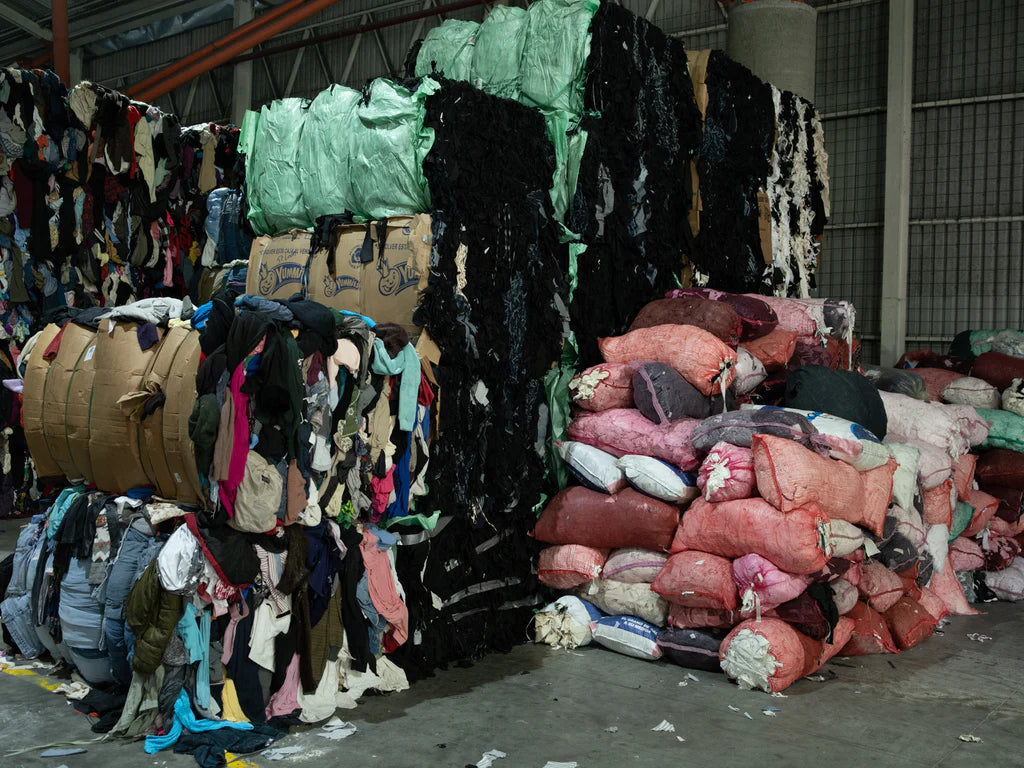
The Other Side of Fast Fashion
While she was in Guatemala, Yuka also decided to see for herself what happens to so much of our discarded clothing from the U.S. It wasn’t a pretty sight.
“We visited this company called Nova Fiber that buys the clothing from donation boxes in the U.S., and the amount was totally shocking,” says Yuka. “Huge bales of clothes, like mountains of clothes. We walked around in disbelief. This is the other side of fast fashion.”
Most of these clothes came from hip stores in the mall, but they are treated as disposable, like a pen or a plastic bag. Some of these garments would end up for sale at steep discounts in stores like Megapaca, a used clothing chain. Some would be refashioned into mattresses and carpet pad. The best of the cotton fiber would be reclaimed for new clothing, including The New Denim Project. Some of it would be trash.
“When you get involved in the process and you really see what it takes to spin a yarn, weave the fabric, cut and sew, and then finishing, you would never ever think of throwing away anything in your closet,” says Arianne. “It’s a disconnection of the end product from the process.”
Yuka and the Engelbergs are both reconnecting the clothing to its real costs. And the end result is gorgeous clothing with meaning.
“I was very careful because many trendy brands jumped onto The New Denim Project, and I did not want to be one of them,” Yuka says. “So it took me a long time to decide to work with them and pick the fabric. I wanted to see how authentic both they and their process would be. It just clicked for the 2020 season.”
“This upcycled denim is soft, drapes really well, the color suits any skin color, and feels very nice. Yet it is sturdy. That’s very important to me! These are pieces you don’t throw away – you keep them,” she adds. “Perfect pieces for casual days and everyday wear. I made five garments that fit most body types and a couple of them are genderless. Easy to wear, not sexy but rather boxy, oversized, useful and practical everyday pieces. Also breezy, but good for all seasons.”
This is the way forward for both fashion and the planet: conscientious designers starting with sustainable fabrics and creating pieces that last. Clothing that honors the amount of energy, raw material, design, and the labor of human hands that goes into making them. Clothing that is authentic.
Beyond Guatemala, Yuka is traveling regularly to Peru, India, and other countries to find other sustainable fabrics for Atelier Delphine. Her commitment is total, and her more experienced customers have noticed.
“Moms are talking to me,” she says. “If they are 45 years old or older, they message me and they say, ‘Yuka, can you please talk to my daughter? She needs to know about fast fashion.’”


